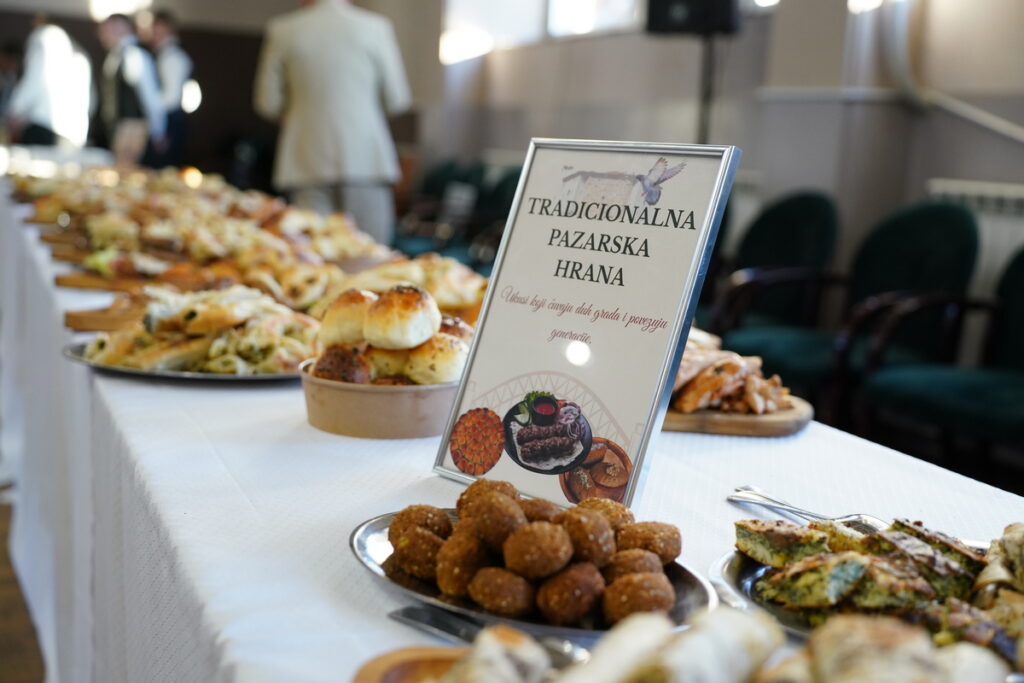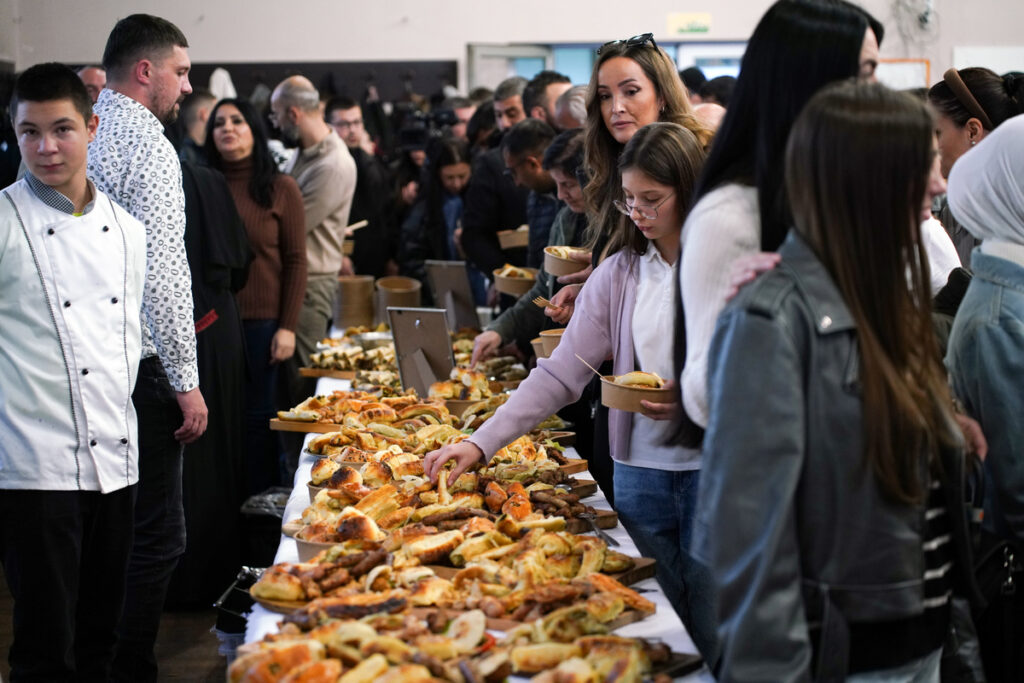The “Culinary Bridges” event in Novi Pazar showed that a shared table can become a space of solidarity, understanding and new beginnings

UNHCR
In the warm and colourful atmosphere of the Hospitality and Tourism School in Novi Pazar — with the sound of knives on cutting boards, the scent of spices filling the air and the cheerful chatter of students — the “Culinary Bridges” event turned the school kitchen into a small embassy of togetherness, if only for an afternoon. Students and refugees gathered around the workstations, exchanging recipes, techniques and memories — but above all, sharing humanity.
For five years now, UNHCR Serbia has organised “Culinary Bridges” in Belgrade, in cooperation with the local Hospitality and Tourism School. But this November, the event left the capital for the first time and arrived in Novi Pazar, a city known for its openness, tolerance and tradition of welcome. Students and their refugee peers immediately found a common language — one that needs no translation, one that smells of spices and carries the warmth of home.

Supported by the Delegation of the European Union to Serbia and local partners, the event once again showed that a shared table can be much more than a place where food is served. It can become a space for meeting, solidarity and fresh starts — a bridge that connects stories, flavours and people.
As tahini, sumac, pita bread, sarma and mantije passed across the tables, young people and refugees shared stories of homes they had left behind, journeys that still hurt, and new communities they are now building. “When we share food, we share humanity. Every dish becomes an opportunity to understand one another and come closer,” was heard among participants, spontaneously, like the unifying message of the day.
A shared table can become a bridge that connects stories, flavours and people
The school’s director, Remzo Destović, reminded everyone that the core idea of the event lies in bringing cultures together and creating opportunities for young people to discover the world through simple, everyday gestures. “We are united by the same idea — to build understanding and friendship through ‘Culinary Bridges’. Food has a magical power: it knows no borders, needs no translation, and connects us while bringing back memories. I am grateful to all participants who shared with us a part of their tradition and culture,” Destanović said.
Soufiane Adjali, UNHCR’s Representative in Serbia, spoke about the strong bond Serbia and its people have with refugees — a solidarity that is not taught, but lived. “People come first, and the state is the second step in providing protection to refugees,” he noted. Adjali also highlighted scholarship programmes for refugees, including the DAFI programme funded by the German Government. “We currently have six students, and the first one graduated a few days ago. The quality of studies in Serbia is high, and that means a great deal to those starting a new life here,” he added.

Finding meaningful work is key to building a new life. Refugees have the legal right to work in Serbia, as well as asylum seekers after six months in the asylum process. UNHCR helps to connect people with employers, support the recognition of qualifications and provide vocational training. And through our private-sector network, #ForRefugees, companies, chambers of commerce and many local businesses are opening their doors to refugees and asylum seekers.
The event ended with photos, laughter and promises to stay in touch. But its true impact will be felt later — in small shifts of perception, in the students’ growing empathy, and in the sense of welcome that refugees will carry with them.

UNHCR Serbia continues to support initiatives like this — those that promote inclusion, understanding and shared life among people who have found a new chance here. Because integration begins like this: with a warm meal, an open heart and the willingness to listen to one another.
When food is shared, humanity becomes the main ingredient
This article was produced within the project “EU Support to Migration Management: Fostering the Integration of Refugees and Migrants”, implemented by UNHCR Serbia in partnership with IOM Serbia and SCRM with the support of the European Union. The article’s author is solely responsible for content that does not necessarily reflect the official views of the European Union.
This article was produced within the project “EU Support to Migration Management: Fostering the Integration of Refugees and Migrants”, implemented by UNHCR Serbia in partnership with IOM Serbia and SCRM with the support of the European Union. The article’s author is solely responsible for content that does not necessarily reflect the official views of the European Union.